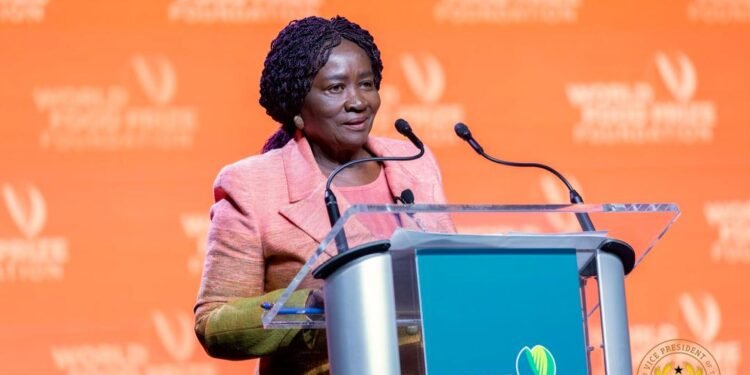In recent years, Ghana’s music industry has experienced a renaissance, showcasing a vibrant tapestry of genres that reflect the nation’s rich cultural heritage.
From highlife to hiplife and afrobeats, Ghanaian music has captivated audiences locally and internationally. However, amidst this growth, there is a troubling trend: the celebration of mediocrity.
This phenomenon manifests in the promotion of subpar music, the prioritization of commercial success over artistic integrity, and the glorification of superficial talent.
Dancehall musician, Stonebwoy, has expressed his disapproval of the way many Ghanaians routinely disparage showbiz figures.
In a video posted, Stonebwoy warned that Ghanaians’ celebration of mediocrity is hurting the country’s music industry.
The ‘Jejereje’ hitmaker called for a shift in mentality to propagate positive strides rather than negativity.
“As Ghanaians in the Ghanaian industry, there’s a need for a mind shift, a mental shift. We need that mental shift because celebrating a lot of mediocrity is one thing that is hurting our industry, because if we want to progress, then we have to do progressive things. But we are not mentally changing to adapt to stuff that would make such progress possible.”
Stonebwoy
Digital platforms and social media have revolutionized the music industry, allowing artists to share their work with a global audience. While this democratization of music has its benefits, it has also led to the proliferation of mediocre content.

Many aspiring artists prioritize viral hits over the cultivation of genuine artistry, often relying on catchy hooks and repetitive beats rather than meaningful lyrics or innovative soundscapes.
This trend is evident in the rise of songs that dominate charts not because of their quality, but due to their ability to go viral on platforms like TikTok or Instagram.
Moreover, Ghana’s music industry has seen a growing emphasis on commercial success, often at the expense of artistic merit.
Record labels and producers are increasingly incentivized to promote music that guarantees quick returns, leading to a homogenization of sound and a lack of diversity in the types of music being produced.
As a result, artists feel pressured to conform to popular trends rather than explore their unique styles and messages.
The celebration of mediocrity has a chilling effect on innovation and creativity within the music industry. When subpar music is lauded and rewarded, it creates an environment where artists feel disincentivized to take risks or experiment with new sounds.
The fear of failure or rejection stifles artistic expression, leading to a stagnation of musical evolution.
Ghana has a rich heritage of musical experimentation, from the fusion of traditional rhythms with contemporary sounds to the incorporation of diverse influences. However, if the industry continues to prioritize mediocrity, the potential for groundbreaking art will be lost.
Global Competitiveness, Recognition in Ghana’s Music Industry

Ghana’s music industry has the potential to compete on the global stage, as evidenced by the international success of artists like Burna Boy and Wizkid from neighboring Nigeria. However, to achieve this level of recognition, Ghanaian artists must prioritize quality over quantity.
The celebration of mediocrity not only undermines the reputation of the industry but also hampers its ability to attract international collaborations and partnerships.
International audiences are increasingly discerning, seeking authentic and high-quality music that resonates on a deeper level. If Ghana’s music industry continues to celebrate mediocrity, it risks being viewed as a market that produces disposable content rather than a source of innovative and impactful art.
This perception limits opportunities for Ghanaian artists to break into international markets and gain the recognition they deserve.
Using Nigerians as an example, the ‘Psalm 23’ singer referred to how supportive Nigerian artists are, underscoring the need for the same mentality in Ghana’s music industry.
“There is a need for us to speak positively about the strides we make toward progress, rather than immediately comparing or downplaying them. Before any Nigerian artist in my time would win a Grammy, they were already doing the groundwork.
“You’d hear a narrative like, ‘If it wasn’t for Davido, Chris Brown wouldn’t have won a Grammy.’ I love that kind of narrative. But here in Ghana, I humbly say we often create narratives that pull us backward. We have a P.H.D. syndrome- Pull Him Down. But what if we change that to ‘Pull Him There?’”
Stonebwoy
While Ghana’s music industry is brimming with potential, the celebration of mediocrity poses a significant threat to its growth and global competitiveness.
By prioritizing quality and artistic integrity over commercial success, the industry fosters an environment that encourages innovation and creativity. Stakeholders—artists, producers, and listeners alike—must recognize the value of excellence in music.
Only then will Ghana’s music industry truly thrive, producing works that not only resonate locally but also captivate audiences worldwide. Embracing a culture of quality over mediocrity will pave the way for a vibrant and dynamic musical future for Ghana.
READ ALSO: 49 Arrested In Illegal Mining Crackdown























